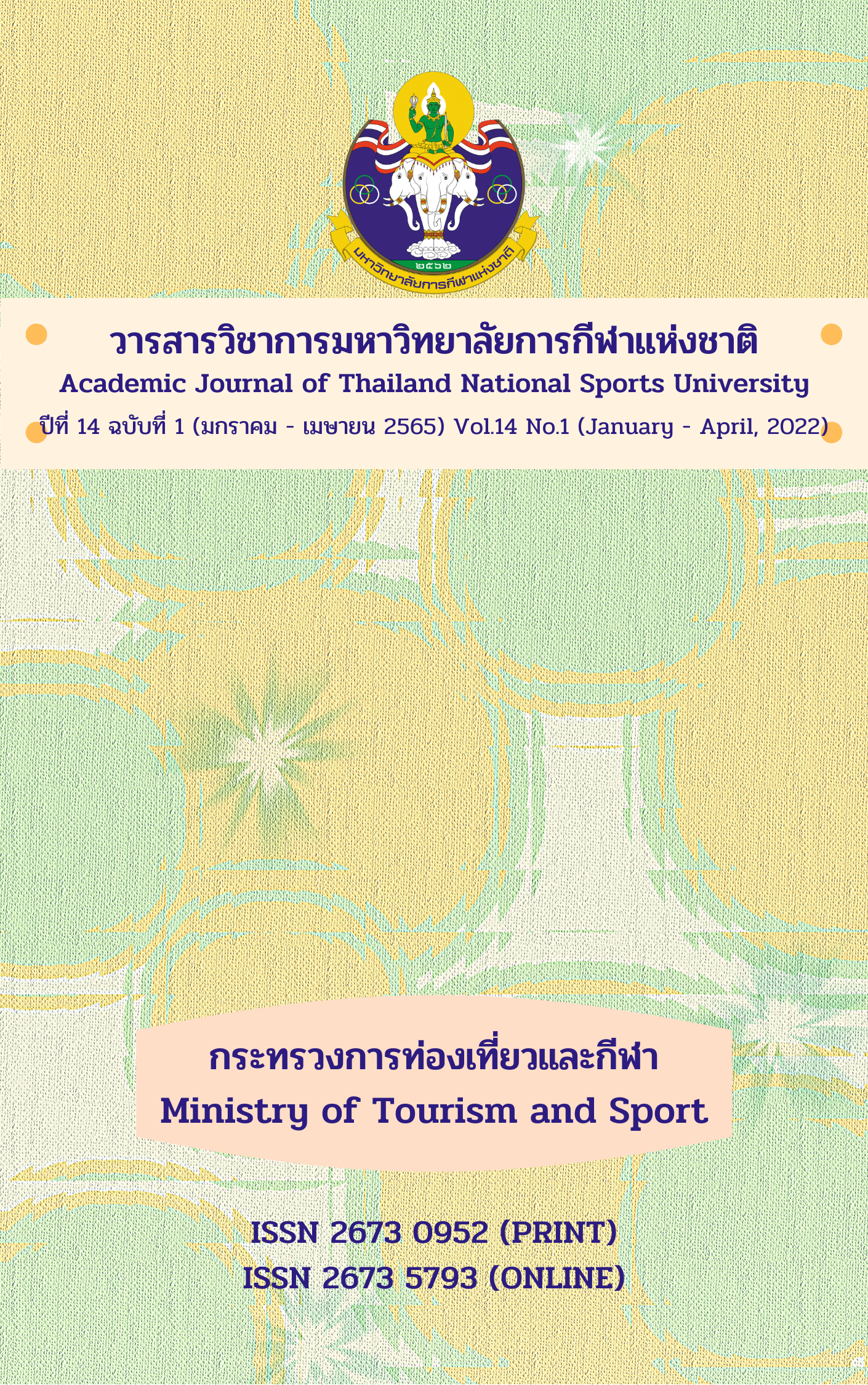COMPARISON OF THE POLICY PROCESS OF SPORTS DEVELOPMENT FOR EXCELLENCE IN HIGHER EDUCATION INSTITUTIONS
Main Article Content
Abstract
The objectives of this study were to compare of the policy process of sports development for excellence in higher education institutions and to propose models of the policy process of sports development for excellence in higher education institutions. The data were collected from document review and in-depth interview. The interviews consisted of 15 vice presidents, 15 middle managers and 15 executors. The research instrument is a semi-structured interview. The examination of the content validity was conducted by 5 experts. The content validity index (CVI) was 0.96 and the index of item-objective congruence (IOC) ranged from 0.60 to1.00. Finally, the suitability and possibility were measured by focus group of from the experts. The results indicated as follows:
- The current condition of the policy of sports development for excellence in higher education institutions showed that the involved personnel who had an important role were administrators’ coaches and athletes. In the dimension of finance and budget it was found that budget was mainly managed for sport competition in the university games. In the dimension of practice facilities there were sufficient places and equipment for practicing. And in the dimension of management and management process there were different implementations up to the operating context of the university.
- The model of policy in sports development for excellence in higher education institutions consisted of 1) setting systems of management and developing athletes for excellence 2) setting sports supporting organization in the university for developing sports for excellence 3) moving supporting and developing sports for excellence concretely and 4) following up and evaluating systematically of implementation of sports for excellence.
Based on the findings of this research, the higher education institutes can consider to take them for developing sports for excellence efficiently.
Article Details

This work is licensed under a Creative Commons Attribution-NonCommercial-NoDerivatives 4.0 International License.
The published article is a copyright of the Academic Journal of Thailand National Sports University. The passage appeared in each article in this academic journal is a perspective of each author which is not related to the journal. Each author is required to be responsible for all components of his/her own article. If there are any mistakes, each author must be responsible for those mistakes on his/her own.
References
Amporn Sriyaphai. (2014). Managing sport in educational institutes for national sports development (Doctoral dissertation), Kasetsart University.
At Saenphakdee. (2015). Model of administrative factors effecting the effectiveness of sports for excellence in public higher education institutes (Doctoral dissertation), Burapha University.
Chelladurai, P. (2005). Managing organizations for sport and physical activity: A systems Perspective (2nded.). Scottsdale, AZ: Holcomp Hathaway.
Daft, R., & L. Richard. (2006). Management (8th ed.). Thomson Leaning, Inc. Daft, Richard L.
Drucker, P., & F. Peter. (2005). The practice of management. New York: Harper & Row.
Ministry of Tourism and Sports. (2016). The Sixth National Sports Development Plan (2017 - 2021). Bangkok. Ministry of Tourism and Sports.
Siriwan Sereerat, Somchai Hirunkit, & Somsak Wanichayaporn. (2002). Organization and Management. Bangkok: Thammasarn.
Sakchai Pitakwong. (2008). Devising Plans and Systems for Excellent Sports Development: Four Models of Excellent Sports Development Patterns. Retrieved from http://www.tahper.or.th/Chiang%20mai/9956/29.pdf
The University Sports Board of Thailand. (1996). Establishment of a department for service and sport development in the university. Chonburi: Royal Jomtien Resort Hotel.
The University Sports Board of Thailand. (2012). University Games of Thailand. Document for the seminar 2012. Bangkok: The University Sports Board of Thailand.


